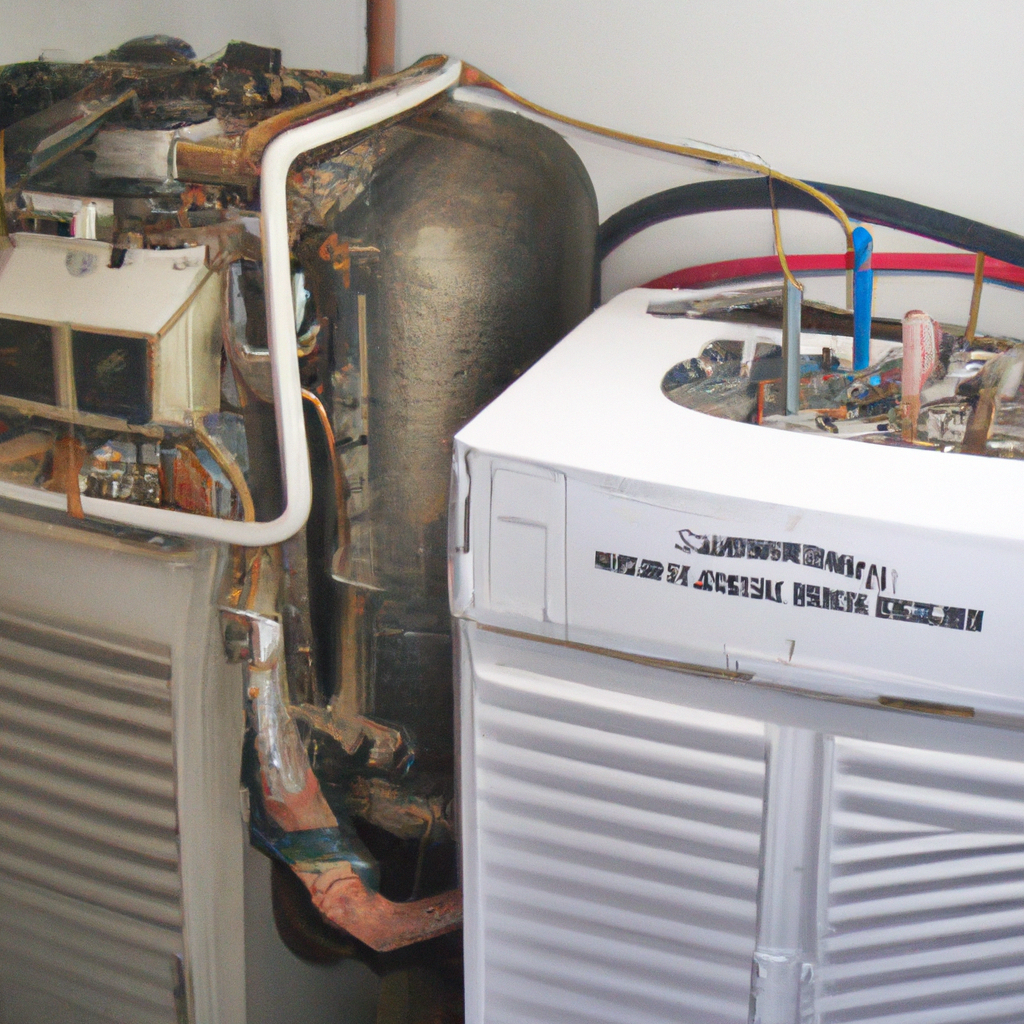Are you considering replacing your furnace with a heat pump? If so, you’re not alone.
Heat pumps are becoming increasingly popular for their efficiency and cost-effectiveness over traditional heating systems. But can they really replace furnaces entirely?
In this article, we’ll explore the pros and cons of using a heat pump to replace an old furnace. We’ll look at factors such as energy use, installation costs, and more, to determine if it’s the right choice for you.
So read on to find out if you should switch to a heat pump!
Overview Of Heat Pumps
A heat pump is an all-in-one heating and cooling system. It works by transferring heat from one space to another, either indoors or outdoors.
Heat pumps use electric power, which makes them more efficient than traditional furnace systems that rely on burning fuel for energy. When compared with furnaces, heat pumps can provide greater control over temperature settings as well as improved air quality in the home.
Installation of a heat pump requires professional help but provides long term savings due to increased efficiency. In addition, most modern models come pre-equipped with powerful fans and filters for better air circulation throughout the house.
With these features in mind, it’s easy to see why many homeowners are considering switching from their current furnace to a heat pump system. By taking into account installation costs, future maintenance fees and overall efficiency gains, there are definite advantages when comparing a heat pump versus a furnace system.
Advantages Of Heat Pumps
Inspired by the warm summer breeze, you may be wondering if a heat pump could replace your current furnace. The answer is yes! Heat pumps offer numerous advantages that make them an attractive and cost-effective option for heating and cooling living spaces.
Here are some of the key benefits:
- Heat Pump Savings: A well-maintained and properly installed heat pump can provide up to 50% more efficiency than traditional furnaces, resulting in significant energy savings each month. * Heat Pump Efficiency: Heat pumps use less electricity while providing excellent temperature control throughout the home.
This means they have fewer environmental impacts than other heating systems. * Heat Pump Installation: Installing a heat pump is typically much easier than installing a new furnace, making it ideal for homeowners who want to save time and money on installation costs.
- Heat Pump Cost & Brands: Prices vary depending on size, brand, and features but there’s likely a model within most budgets. Popular brands include Trane, Lennox, Carrier, Rheem and Goodman among others so finding the perfect fit won’t be hard at all.
Heat pumps also come with additional perks such as better air quality due to their ability to filter out dust particles from the air or reduce humidity levels during summer months which makes them great additions when it comes to comfort and convenience in any home. Now that we’ve discussed its advantages let’s take a look at what drawbacks these units might bring too.

Disadvantages Of Heat Pumps
Heat pumps can be an effective replacement for a furnace, however they also come with several drawbacks. One of the most significant disadvantages is that heat pumps tend to be noisy compared to furnaces.
This noise pollution can be disruptive in living spaces and may require additional soundproofing measures during installation. Additionally, while replacing a furnace with a heat pump initially costs less than buying and installing a new furnace, such installations often become more expensive due to their limited capacity and difficulty of installation in certain areas or climates.
Moreover, many people find that heat pumps are not as efficient as traditional furnaces when it comes to heating during winter months, which can lead to higher energy bills over time.
In order to determine if switching from a furnace to a heat pump is right for them, homeowners must weigh these potential costs against any savings they could experience by making the switch. If after careful consideration it’s determined that a heat pump isn’t suitable for one’s needs then there are other alternatives available for replacing a furnace without sacrificing comfort or efficiency.
Alternatives To Replacing A Furnace
Replacing a furnace can feel like an insurmountable task, but there are alternatives to consider. Like a ray of sunshine breaking through the clouds on a stormy day, these options offer hope when it seems all is lost.
A heat pump can replace a furnace and provide additional advantages such as lower energy costs. Geothermal heaters use the earth’s natural temperature for heating purposes and may be used in place of a gas or electric heater depending on your region.
Boiler systems are another viable option that utilize hot water to create warmth throughout your home. Air conditioning units also have heating components which can help reduce reliance on furnaces during winter months.
Every situation is different so it’s important to evaluate each alternative before making any decisions about replacing your furnace. Consider talking with an expert who understands the specifics of your area, climate, and budget; they will be able to advise you on whether one of these solutions would make more sense than installing a traditional gas furnace.
Conclusion
In conclusion, heat pumps can be a great alternative to replacing your furnace. They offer many advantages such as lower energy costs and improved indoor air quality.
But they do have some drawbacks that should be considered before making a decision. The most notable issue is their inability to provide sufficient heat in extreme cold weather conditions.
If you live in an area with cooler temperatures, it may not be the best option for you.
However, there are still alternatives if you don’t want to replace your furnace completely. You could install a hybrid system which combines both a furnace and a heat pump.
This would allow you to get the benefits of both systems while still having access to efficient heating during colder months. Additionally, you could also look into other options like geothermal or electric baseboard heating systems for additional warmth when needed.
Overall, deciding whether or not to replace your furnace with a heat pump depends on where you live and what type of climate you experience throughout the year. Heat pumps can offer many advantages but they aren’t always suitable for every situation so make sure to consider all the options available before making any decisions!




